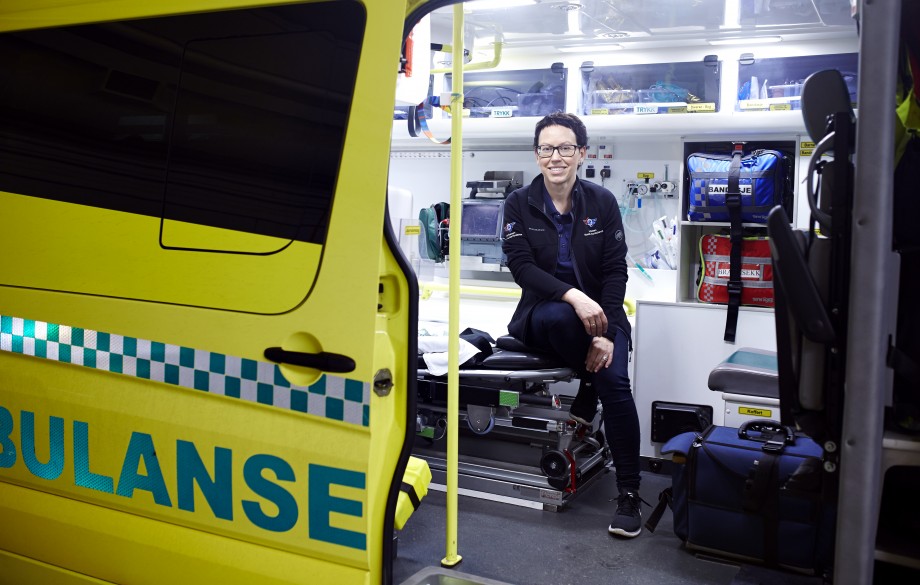After completing the master's degree in Prehospital Critical Care, Mona Guterud became Norway's first ambulance worker to combine clinical work with a doctoral fellowship.

Name and age: Mona Guterud, 48 years
Current position and workplace: Ambulance worker at Oslo University Hospital and Ph.D. fellow at the Norwegian Air Ambulance Foundation
Study programme at UiS: Master i Prehospital critical care (PHCC) from 2014-2018
Mona was among the first students of the Master's programme in Prehospital Critical Care at the University of Stavanger. After finishing her degree, she became the first to combine clinical work in the ambulance service with a doctoral fellowship in Norway.
Why did you choose to study at the University of Stavanger?
The programme was utterly new, and I thought it was exciting to have a master's degree focused on prehospital emergency medicine. There was no major obstacle to studying in Stavanger with residence in Eastern Norway, as the teaching is seminar-based.
Which aspects of your studies have been the most beneficial to
your career development?
The students formed a unique national network, and we still benefit from this. Also, we had extremely skilled lecturers, which contributed to a very high professional level of education.
In my clinical work, I have benefited from the enormous competence boost that helps me assess situations, think critically, and stay updated on the latest research and procedures. Furthermore, the formal requirement to proceed with a Ph.D. came from the Master's degree.
What are the main focus areas in your work?
I love working in the ambulance services because no two days are the same. We are in a profession with significant and continuous changes. There is no possibility of stagnation, and I think that is exciting.
In the Ph.D. position, I research whether competence development and the introduction of NIHSS (stroke score) on a mobile application in prehospital services can increase the correspondence between pre- and in-hospital stroke diagnosis.
What are your top three pieces of advice for new students?
- Build networks.
- Prioritize by distinguishing between "nice to know" and "need to know."
- Ask former students for advice.